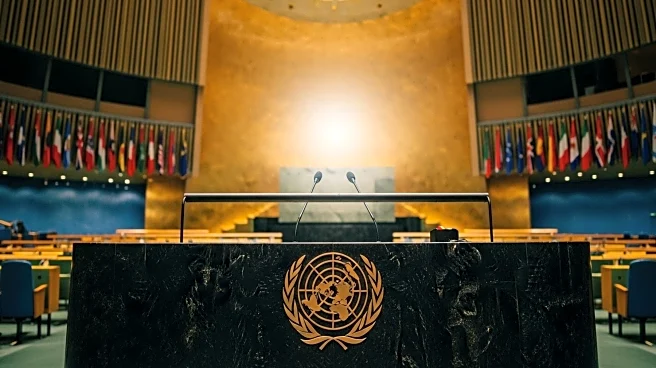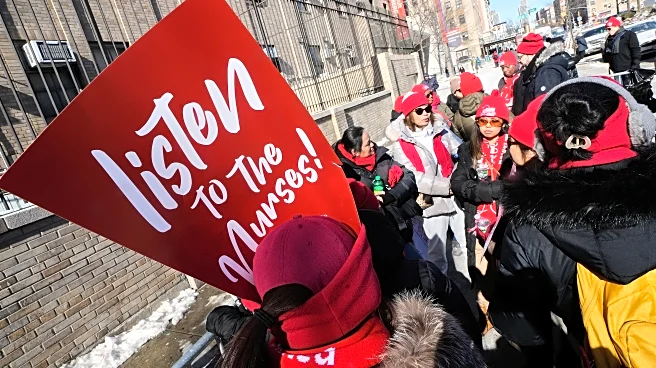What's Happening?
The United Nations General Assembly has voted to allow Palestinian President Mahmoud Abbas to address its annual meeting by video, following the revocation of his U.S. visa. The decision was made after a vote of 145 to 5, with six abstentions. The U.S. had revoked visas for around 80 Palestinian officials, including Abbas, citing accusations of undermining peace efforts. The visa denial has been criticized by several U.S. allies and the U.N., which views it as a violation of the Host Country agreement. The decision comes amid ongoing tensions related to the Israeli-Palestinian conflict and efforts to advance a two-state solution.
Why It's Important?
The U.N.'s decision to allow President Abbas to address the General Assembly by video highlights ongoing international tensions surrounding the Israeli-Palestinian conflict. The U.S. visa denial has drawn criticism and is seen as a potential obstacle to diplomatic efforts aimed at resolving the conflict. The situation underscores the complexities of international diplomacy and the challenges faced by the U.N. in facilitating dialogue among member states. The decision also reflects broader geopolitical dynamics, with countries like France and Saudi Arabia pushing for a phased plan for Palestinian statehood, which the U.S. opposes.
What's Next?
The U.N. General Assembly's decision may lead to further diplomatic discussions and potential shifts in international support for Palestinian statehood. The U.S. may face increased pressure from allies to reconsider its stance on the visa issue and its broader approach to the Israeli-Palestinian conflict. The situation could also impact future U.S. diplomatic relations and its role in Middle East peace efforts. The ongoing conflict and efforts to establish a Palestinian state will likely remain a focal point in international diplomacy.









